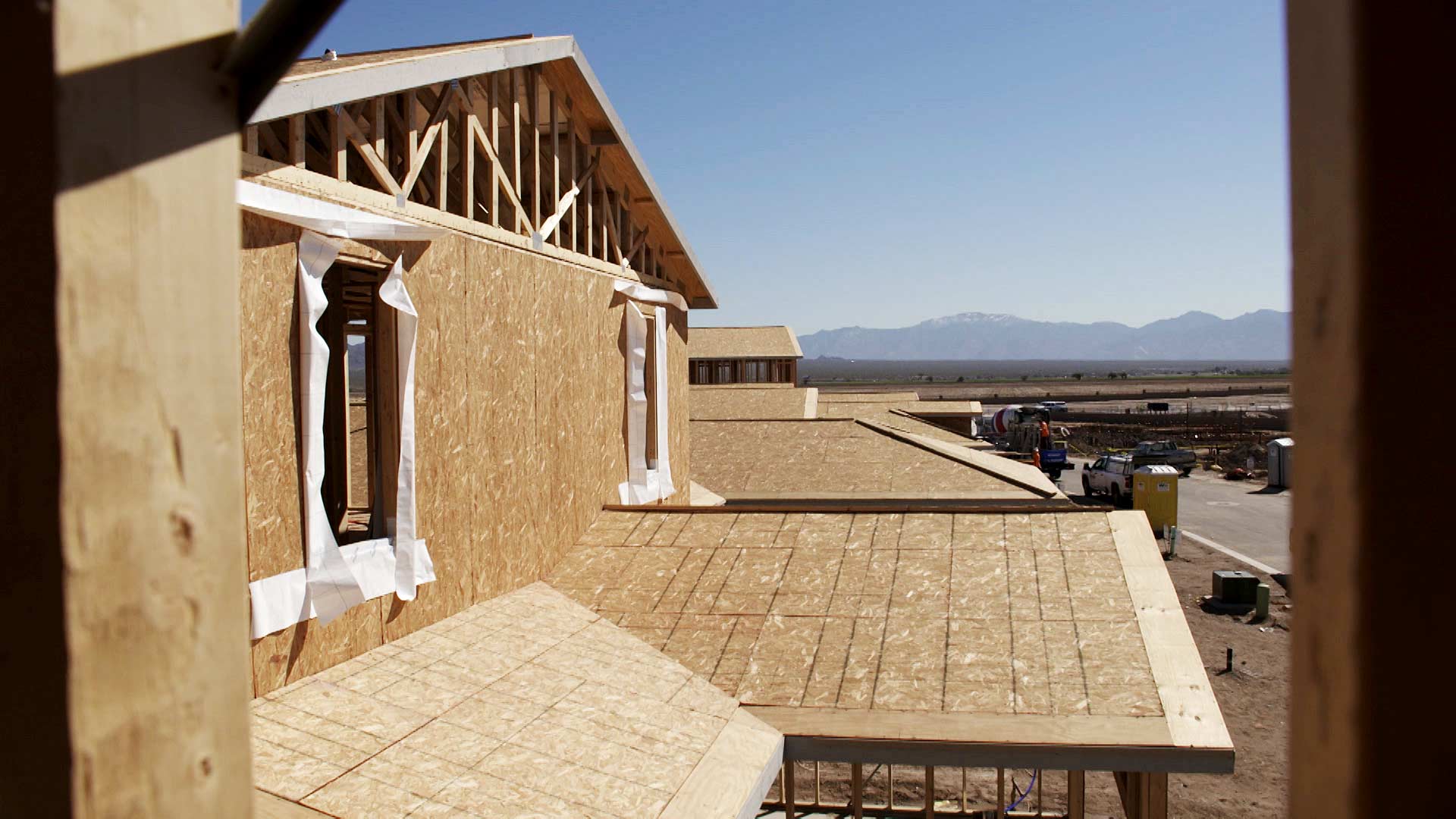 Homes under construction at a new development in Marana. March 2021.
Homes under construction at a new development in Marana. March 2021.
Record-breaking high temperatures are expected to bake southern Arizona again this summer.
Experts say heat is a bigger concern when combined with the affordable housing crisis, and urban planners say it's crucial to handle the dangers that come with hot weather.
University of Arizona professor Ladd Keith notes Chicago suffered through a 5-day heat wave in 1995. More than 730 deaths were linked to the hot weather in the city, but it was not the wake-up call for which many urban planners had hoped.
“At the time, it was very striking because it was one of the first modern examples of a heat wave like that,” said Keith. “And it was treated almost like a blip. Legislation and policy making have moved on from it and not much really changed.”
Fast forward just over 20 years and concerns over climate change are bringing new attention to annual bouts of dangerous summertime heat, and how cities can reduce the health impact of hot weather.
Keith and research colleague Sara Meerow at Arizona State University published a guide for planners and their communities focused on urban heat resilience. It is a 98 page report that introduces a term called “heat governance.”
“Heat governance is really critical because governments at different levels, from national to states to cities, have been focusing on other climate hazards for much longer," according to Keith. "That includes planning for droughts, flooding, and wildfires. Heat governance is this idea that we have to pay attention to these actors, strategies and processes that we as a society use to manage and mitigate heat as a hazard.”
In Chicago, many victims died in their homes. Some were elderly or low-income residents; others were unable to afford the cost of installing and operating an air conditioner.
During the current housing crisis, some are finding it hard to afford a place to live at all. Keith says that’s an issue that needs to be addressed with an emphasis on surviving unbearable conditions in mid-summer.
“A lot of the focus is currently on mitigating heat from the urban heat island effect, things like cool pavement pilot projects, urban forestry campaigns, and cooling centers," he explained."These positions themselves will not be able to solve the affordable housing crisis and all the housing challenges, but it’s really tied closely to our heat challenges that we’re facing, particularly when we look at low income folks that have less weatherized homes, and when you look at the unhoused population which is increasing nationally.”
A few cities and counties are responding to the crisis. Keith notes that unlike Chicago, Phoenix took action when confronted with a rising number of fatalities connected to hot weather and the shortage of affordable homes. The state of Arizona created the position of a heat officer, the first such appointment in the country, after Governor Katie Hobbs declared a state of emergency last summer.
"The nation’s first heat officer was at the state level, and I think what we’re seeing from that is not just the city’s addressing heat but the state," said Keith.
That means smaller cities and rural areas, including tribal lands, can also benefit from the newly found urgency over heat-related health concerns.
Now that governments seem to be getting serious about how to help Arizona residents survive hazardous heat, all eyes are on the thermometer. This summer is likely to produce hot weather and housing challenges once again.

By submitting your comments, you hereby give AZPM the right to post your comments and potentially use them in any other form of media operated by this institution.